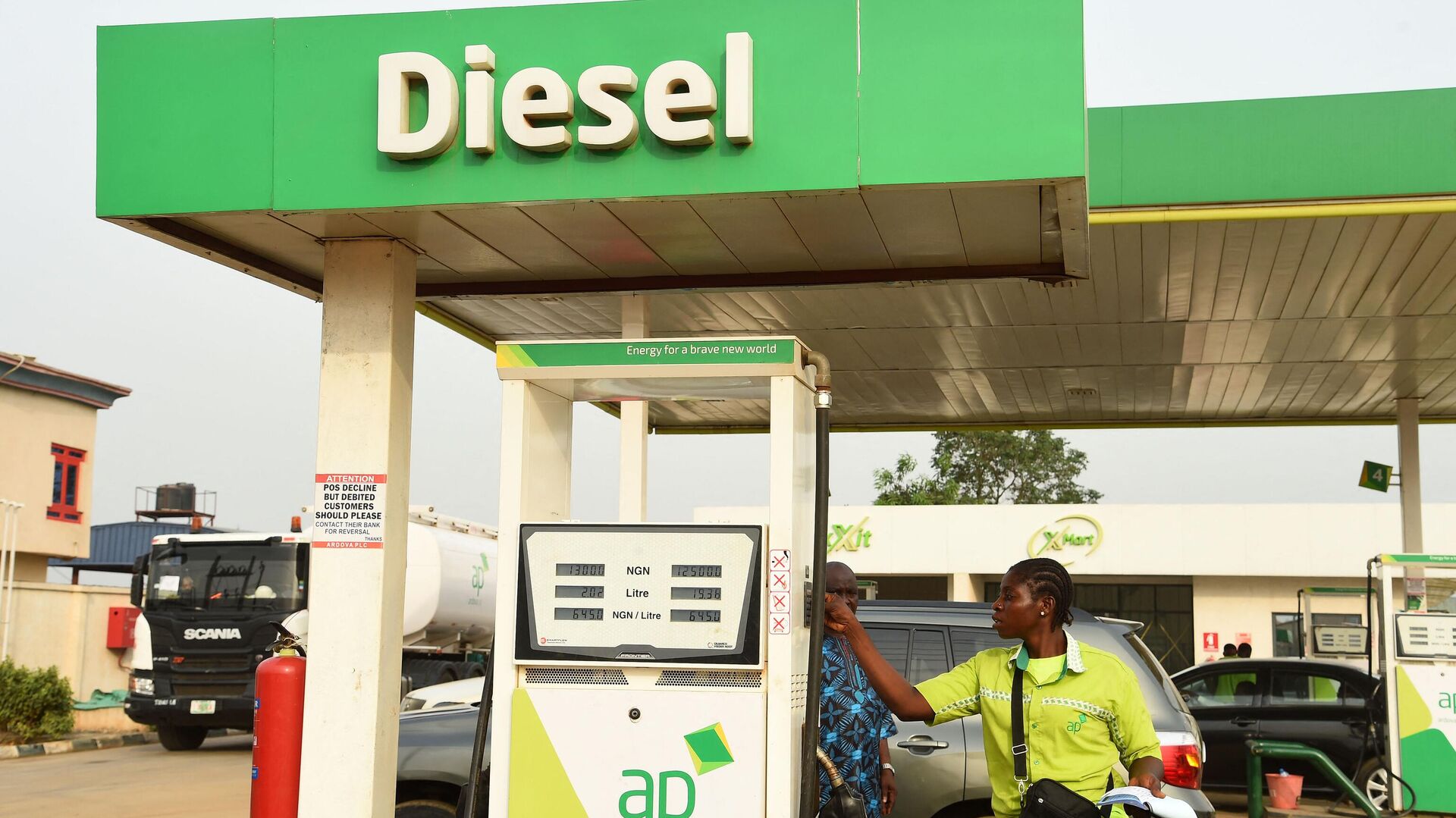https://sputnikglobe.com/20230204/hungarian-energy-ministry-warns-of-diesel-deficit-in-eu-given-reliance-on-russian-supplies-1106976627.html
Hungarian Energy Ministry Warns of Diesel Deficit in EU Given Reliance on Russian Supplies
Hungarian Energy Ministry Warns of Diesel Deficit in EU Given Reliance on Russian Supplies
Sputnik International
Europe may see a growth in diesel prices and even its shortage once an EU-wide ban on Russian oil products comes into force on February 5, as the country accounted for 50% of the European Union's needs for the fuel
2023-02-04T13:17+0000
2023-02-04T13:17+0000
2023-02-04T14:38+0000
energy crisis in europe
russian oil shipments
price cap
https://cdn1.img.sputnikglobe.com/img/07e6/0b/1e/1104859410_0:159:3076:1889_1920x0_80_0_0_e6e1fe1b9514f631886d6a1fcb66682e.jpg
Starting Sunday, the EU will prohibit imports of Russian-origin petroleum products used throughout Europe. Meanwhile, the bloc, along with G7 and Australia, instituted on Friday a price cap on Russian oil products, which bars access to various services, including financing and insurance, unless the products are purchased at or below the agreed limits of $100 per barrel for premium-to-crude products (such as diesel and kerosene) and $45 per barrel for discount-to-crude products (such as naphtha). From the outset, Hungary opposed expanding sanctions to include the Russian energy sphere, as most of the oil comes into the country from Russia via the Druzhba pipeline, the ministry noted. Thanks to a temporary exemption for the pipeline imports, secured by Hungary in 2022, the country will still be allowed to domestically refine Russian oil after the embargo kicks in on Sunday, the ministry said. However, "it will only be possible to trade with other countries with products of non-Russian origin."This condition means that an oil refinery, located in the Slovak capital of Bratislava and a subsidiary of the Hungarian company MOL, will only be able to export petroleum products made from non-Russian oil to other countries, including Hungary. Meanwhile, the company said earlier that non-Russian oil made up only just 30% of its crude.The ministry pointed out that "the consequences of the new restrictions, which are now coming to force, could affect Hungary in the long run."On October 7, the European Union introduced its eighth package of sanctions against Moscow which, among other things, set a framework for capping the price of Russian seaborne oil exports at a level coordinated by G7 allies. Some EU countries, including Hungary, were excluded from such measures as they import Russian oil through pipelines.In late December, Russian President Vladimir Putin signed a decree banning supplies of Russian oil and petroleum products if contracts directly or indirectly provide for a price cap.
https://sputnikglobe.com/20221029/who-are-the-just-stop-oil-protesters--why-do-they-attack-art-1102761323.html
Sputnik International
feedback@sputniknews.com
+74956456601
MIA „Rossiya Segodnya“
2023
Sputnik International
feedback@sputniknews.com
+74956456601
MIA „Rossiya Segodnya“
News
en_EN
Sputnik International
feedback@sputniknews.com
+74956456601
MIA „Rossiya Segodnya“
Sputnik International
feedback@sputniknews.com
+74956456601
MIA „Rossiya Segodnya“
energy crisis in europe, diesel fuel, price cap
energy crisis in europe, diesel fuel, price cap
Hungarian Energy Ministry Warns of Diesel Deficit in EU Given Reliance on Russian Supplies
13:17 GMT 04.02.2023 (Updated: 14:38 GMT 04.02.2023) BUDAPEST (Sputnik) - Europe may see a growth in diesel prices and even its shortage once an EU-wide ban on Russian oil products comes into force on February 5, as the country accounted for 50% of the European Union's needs for the fuel, the Hungarian Energy Ministry said on Saturday.
Starting Sunday, the EU will prohibit imports of Russian-origin petroleum products used throughout Europe. Meanwhile, the bloc, along with G7 and Australia, instituted on Friday a price cap on
Russian oil products, which bars access to various services, including financing and insurance, unless the products are purchased at or below the agreed limits of $100 per barrel for premium-to-crude products (such as diesel and kerosene) and $45 per barrel for discount-to-crude products (such as naphtha).
"In Europe, we can even expect a shortage of diesel and an increase in the price of petroleum products, since half of the EU's diesel demand is still supplied by Russian sources. Due to sanctions, Europe now has to buy products from other, more distant regions, such as importing Indian, Middle Eastern or Chinese products, which means it can buy petroleum products much further away and more expensive, which can cause supply insecurity," the ministry said in a statement.
From the outset, Hungary opposed expanding sanctions to include the Russian energy sphere, as most of the oil comes into the country from Russia via the Druzhba pipeline, the ministry noted.
"Full-scale energy sanctions, including those related to nuclear energy and gas import, are also on the agenda in the EU. The Hungarian government is strongly opposed to further broadening the energy sanctions," the ministry said.

29 October 2022, 14:02 GMT
Thanks to a temporary exemption for the pipeline imports, secured by Hungary in 2022, the country will still be allowed to domestically refine Russian oil after the embargo kicks in on Sunday, the ministry said. However, "it will only be possible to trade with other countries with products of non-Russian origin."
This condition means that an oil refinery, located in the Slovak capital of Bratislava and a subsidiary of the Hungarian company MOL, will only be able to export petroleum products made from non-Russian oil to other countries, including Hungary. Meanwhile, the company said earlier that non-Russian oil made up only just 30% of its crude.
The ministry pointed out that "the consequences of the new restrictions, which are now coming to force, could affect Hungary in the long run."
On October 7, the European Union introduced its eighth package of sanctions against Moscow which, among other things, set a framework for
capping the price of Russian seaborne oil exports at a level coordinated by G7 allies. Some EU countries, including Hungary, were excluded from such measures as they import Russian oil through pipelines.
In late December, Russian President Vladimir Putin signed a decree banning supplies of Russian oil and petroleum products if contracts directly or indirectly provide for a price cap.



